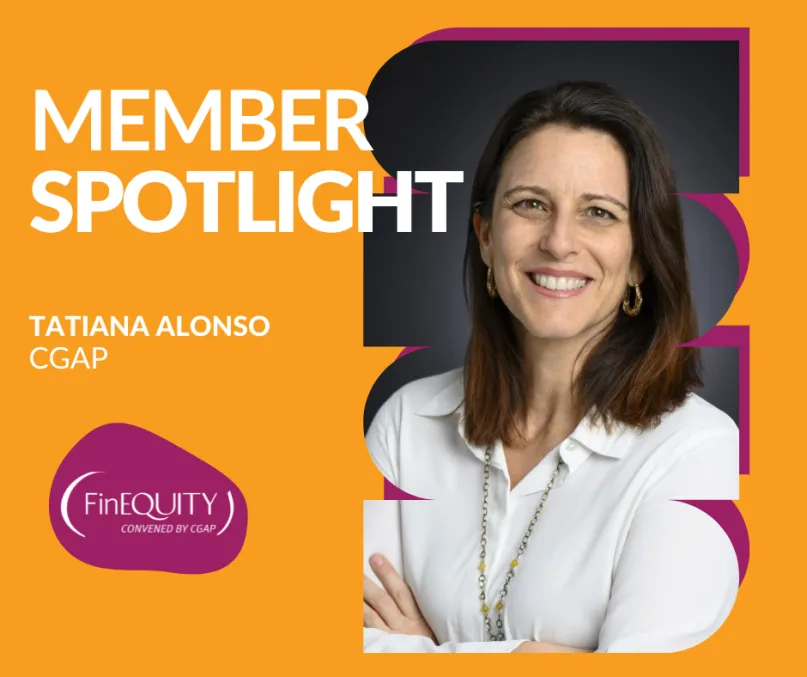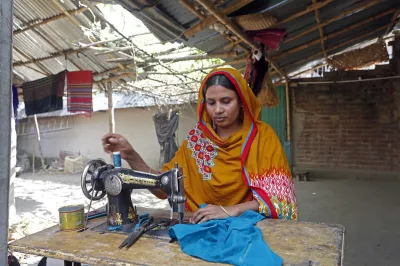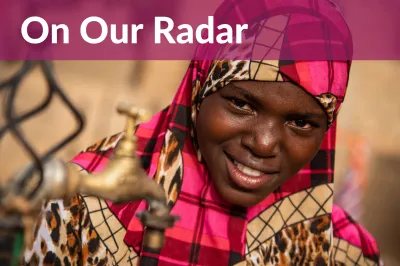Member Spotlight: Tatiana Alonso

FinEquity: Tell us a little bit about yourself. A fun fact? Something that might surprise most people? Your superpower?
Tatiana Alonso: I was born and raised in the South of Spain in the late seventies, a time when my country was emerging from four decades of dictatorship. Witnessing the exemplary transition to democracy shaped my understanding of the power of social responsibility and hard work in moving society forward, even amidst differences. Spain's swift development, including joining the EU, demonstrated that collective progress is achievable. Living across Europe and the USA before settling in Paris, I've come to believe that our shared humanity unites us all. We all seek health, prosperity, and a sense of belonging to support and empower our loved ones. Raising my three wonderful children has confronted me with my many human limitations, yet their wisdom and compassion have helped me embrace vulnerability, transforming it into strength.
FinEquity: What originally drew you to the women’s financial inclusion and economic empowerment sector? What has kept you here?
Tatiana Alonso: As an Economist by training and a policy expert by profession, I've had the privilege of working with a major global private bank, the Central Bank of Spain, the Finance and Competitiveness practice of the World Bank, and now CGAP. Throughout my career, I've recognized the indispensable role that regulatory frameworks play in nurturing robust, inclusive, and efficient financial sectors. While financial stability has historically been the primary focus of policy, it's become evident that stability alone is not enough – and it certainly doesn't ensure financial inclusion. In today's landscape, the financial sector isn't adequately serving economic agents, particularly women. For example, the IMF estimates that globally, 65 percent of women have an account with a financial institution, compared with 72 percent of men. Whether it's access, usage, or derived utility, the gender gap in financial inclusion remains unacceptably high in developing countries. Many individuals, especially women, are being deprived of the opportunity to leverage financial services for resilience and prosperity. It's clear that financial regulation must evolve to address this disparity. Organizations like CGAP are at the forefront of driving this necessary change and I am excited to be part of it.
FinEquity: Any current projects you’re working on/or recently worked on that you find particularly exciting/engaging?
Tatiana Alonso: At CGAP, I lead a four-year project focused on financial Supply-Side Gender-Disaggregated Data (SGDD). This entails data generated by financial service providers as they onboard clients and as these clients engage with various financial products such as payments, deposits, credit, and insurance. A portion of this data must be reported to authorities to monitor risks and policy progress. This data holds significant informative value regarding customer needs and behaviors, particularly when disaggregated by gender. The project's ultimate objective is to mainstream the collection and utilization of SGDD in the financial sector. This initiative aims to establish a virtuous cycle where both providers and authorities effectively and affordably generate and utilize SGDD. This, in turn, results in better serving women's financial needs inclusively and responsibly. We recently launched a compelling blog and video detailing how SGDD can help reduce the gender gap in finance, which I encourage your readers to check out.
FinEquity: What can our members connect with you about/what can they ask you about?
Tatiana Alonso: Anything at the intersection of financial data, gender and policy! We are conducting extensive research to understand how market actors collect and utilize supply-side gender-disaggregated data. This initiative aims to develop use cases tailored for financial service providers, supervisors, regulators, policymakers, funders, and impact investors. Additionally, CGAP is creating indicators to support these use cases. Insights and questions that can aid in this process are highly encouraged. A recent report summarizes our key findings from a global scanning exercise, with ongoing efforts now focused on learning from country-level experiences in Chile, Rwanda, Brazil, Peru, with upcoming visits to Colombia and Zambia.
FinEquity: What role does FinEquity play in your work? Where do you see value in this community? How has being a member shaped your work?
Tatiana Alonso: It's impressive to see how FinEquity plays such a crucial role in driving financial inclusion and economic empowerment for women. Their vast array of resources and network of experts are incredibly helpful for our SGDD project. We've leveraged the available information in FinEquity for our analysis of Financial Service Providers (FSPs) use cases, greatly enriching our work. Furthermore, participation in seminars and gatherings organized by FinEquity has been invaluable. We've had the opportunity to learn from diverse experts and share experiences with other professionals committed to the same cause. I'm particularly excited to participate as speaker at an upcoming joint FinEquity and Women Entrepreneurs Finance Initiative (We-Fi) webinar on gender data on March 28 and moderating a panel on SGDD at the upcoming FinEquity ALC annual meetings in Bogotá next month. I'm confident this event will be an excellent opportunity to generate new ideas, establish valuable connections, and continue advancing our work toward financial inclusion and economic empowerment for women.


